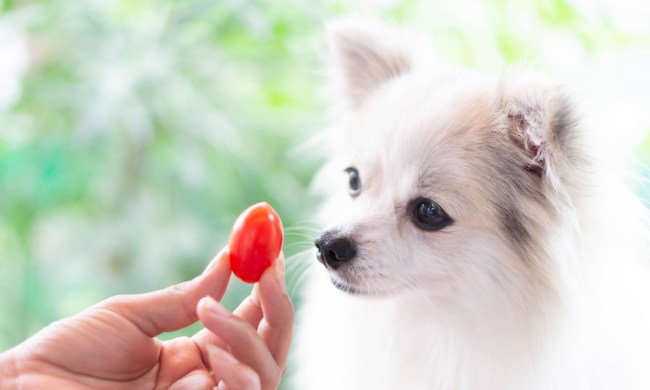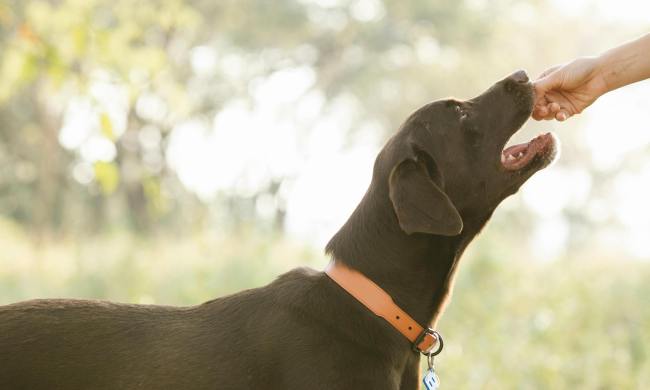“Eat your fruits and veggies” is standard advice from doctors, dietitians, and parents — you may have been on the receiving end of this (sound) recommendation for your overall health. However, dog-specific food is generally limited to “dry” and “wet.” That doesn’t mean a taste of a favorite human food here and there is off the table. Still, you’ll want to know which ones (blueberries and apples) are safe and which (chocolate, grapes, and onions) are off the table.
If you find pears peachy, you may wonder if you can share. Can dogs eat pears? What happens if the little rascal eats a piece of pear you dropped on the floor faster than you can say, “Leave it?” Good news: You don’t have to panic. Here’s what to know about pears and dogs.
Can dogs eat pears?

Generally, pears are safe for dogs to consume in moderation. Pears may offer some health benefits, too. As a nutrient-dense fruit, pears are excellent sources of fiber, vitamin C, and vitamin A, which can improve digestive, skin, and bone health. Importantly, your dog’s regular food has everything they need to survive and thrive.
Therefore, consider pears an occasional treat. Generally, dog food should comprise at least 90% of your pet’s daily calories, with treats making up the rest. (Dogs with health concerns like obesity and diabetes may have different instructions, so consult your pup’s vet first.)
Also, what qualifies as “moderation” varies by the size of your dog. For toy breeds, a tiny slice of pear may be the maximum. Large dogs may be able to tolerate more without any issues like weight gain or stomach aches.
Are pears unsafe for dogs? How to serve your dog pears

Pears are safe for most dogs, but serving size and other factors are essential to ensuring that remains the case.
- Cut into bite-sized pieces. Large slices or full pears can be a choking hazard.
- Don’t feed pear seeds. Dogs can’t avoid the pear seeds like humans can and may devour a pear whole. Seeds can be choking hazards and have traces of the toxin cyanide, which can be harmful to pets if consumed in large quantities (and there’s no consensus on what “large quantities” means).
- Avoid canned pears. They contain unnecessary sugar, which adds calories to a dog’s diet. Stick to whole fruit (sliced).
- Talk to your pet’s vet. Consulting the vet before feeding your dog something other than food designed for them is never a bad idea, whether your pet has an underlying condition or weight issues or not. Your vet knows your pet’s personal history and is there to answer these questions to help you keep your furry friend healthy.
- Monitor for side effects. Dogs that don’t take to pears may experience GI discomfort, including vomiting or diarrhea. If your dog shows these signs after consuming pears, they may not be the best fit for your pet. Call the vet if symptoms persist.




